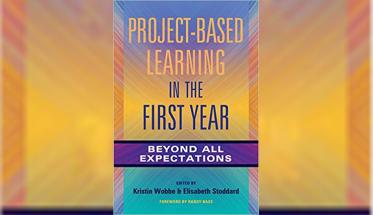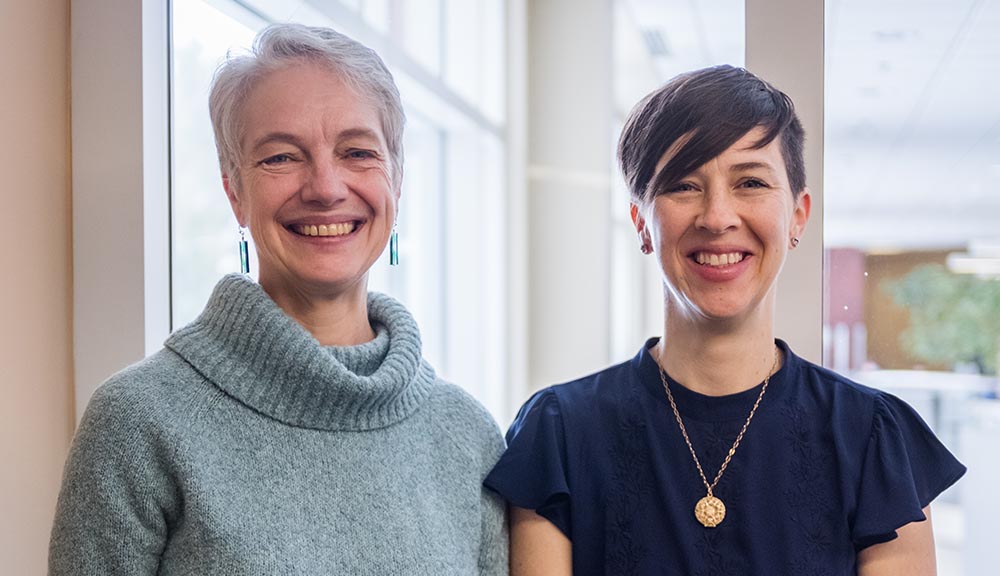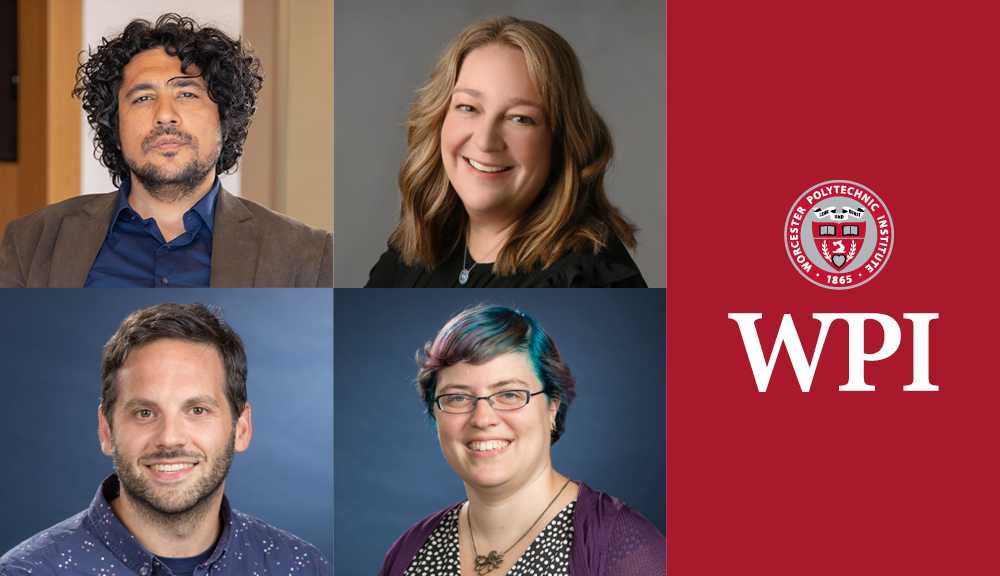In an environment where families are questioning the value and relevance of higher education, universities are rethinking their approach to preparing students for real-world careers. With a new book, Project-Based Learning in the First Year: Beyond All Expectations, a group of faculty at Worcester Polytechnic Institute (WPI) helps them do just that by incorporating project-based learning into their own undergraduate curriculum, right from the first year.
WPI pioneered project-based learning in 1970 as a way to help students learn how to identify, investigate, and report on potential approaches and solutions to real, open-ended problems, through major projects in their junior and senior years. This hands-on approach, now infused in the first-year experience as well, gives students professional-level experience in critical thinking and problem solving.
“WPI has always forged its own path with regard to how we engage students and position them to succeed,” said Kristin K. Wobbe, associate dean of Undergraduate Studies and co-editor of the book. “We show students, right from the start of their education, how they can have a significant, tangible impact on the world. At many universities, first-year students have to complete general education requirements before they get any hands-on experiences, and that can be frustrating. At WPI, we give students an opportunity to dive right in.”
Project-Based Learning in the First Year: Beyond All Expectations, published by Stylus Publishing LLC, provides practical and applicable advice for universities looking to retool their curriculum for greater impact. Co-edited by Wobbe and Elisabeth “Lisa” Stoddard, assistant teaching professor of undergraduate studies, the book also includes insight and experiences of more than 10 WPI faculty members, and details WPI’s Great Problems Seminar (GPS), an optional two-course introduction to university-level research and project work that focuses on important problems facing the world, from food and energy to health and learning.
Launched in 2007, GPS includes courses that are co-taught by pairs of faculty members from different disciplines and that are tied to current events, societal problems, and human needs. More than 2,500 students have completed more than 500 different projects in the GPS.
“We’d been presenting the Great Problems Seminar at conferences for a number of years,” said Stoddard, “and we’d often get feedback from people who attended our sessions and wanted to know how to develop a program; they saw the value for first-year students, but they didn’t know how to make it happen on their own campuses. This book shows them how.”
In the foreword to the book, Randall Bass, Executive Director of the Center for New Designs in Learning and Scholarship at Georgetown University and a widely recognized thought leader in higher education impact, stresses that “to focus on project-based learning in the first year is to say [project-based learning] is not only central but also foundational and transformative.”
Project-Based Learning in the First Year is written for administrators and faculty in higher education, with each chapter providing “the why and the how” of implementing project-based learning in the first-year.
Divided into three sections, the book first presents the impact of project-based learning in the first year and includes suggestions on gaining institutional support. The next section details the planning and preparation required to incorporate projects into the curriculum, and the role of faculty, administrators, and staff in the student experience. The final section walks through practical strategies and concrete steps for creating assignments, in-class activities, and team project management tools.
The Great Problems Seminar is one component of a revolutionary approach to education pioneered by WPI in 1970 and known as the “WPI Plan.” The WPI Plan replaced the traditional, rigidly prescribed engineering curriculum with a flexible and academically challenging program aimed at helping students learn how to learn by synthesizing classroom experience in projects that solve real-world problems. Students explore complex themes at the intersection of society and science, with a goal of becoming well-rounded, globally aware graduates with superior analytical thinking skills and a handle on the ambiguous problems that will characterize their future careers.
The WPI Plan was recognized by the National Academy of Engineering (NAE) with the prestigious 2016 Bernard M. Gordon Prize for Innovation in Engineering and Technology Education, an annual award that applauds modalities and experiments in education that develop effective engineering leaders.
All WPI students must complete two significant research projects: one is a high-level design or research experience conducted within their major. It challenges them to solve problems that would be typically encountered in their professional discipline. The other project presents an issue at the intersection of science, technology, society, and emphasizes the need to learn about how technology affects societal values and structures. While the GPS is optional, students are strongly encouraged to enroll, as the courses help prepare them to tackle these other projects. It also prepares them, and increases their qualifications for, summer internships, jobs, undergraduate research positions, and more.
WPI’s approach to education remains distinctive within higher education. It has proven invaluable to alumni and has become a model for other colleges and universities. A UMass Donahue Institute study of WPI alumni revealed that project-based learning has significantly enhanced their professional abilities and advancement, their interpersonal and communications skills, and their world views.
The university has become a valued source for academics and administrators from around the world through the Center for Project-Based Learning, launched in 2016. Through the Center, WPI provides consulting services, workshops, and seminars to help universities improve or enhance their existing curricula with project-based programs. The Center hosts the annual Institute for Project-Based Learning, an intensive, hands-on, two-and-a-half-day immersive workshop on the WPI campus in which faculty and administrators are paired with WPI coaches to learn how best to incorporate projects into their own campus culture. To date, the Center has provided more than 110 institutions from around the world intensive instruction on incorporating PBL into their curricula—a multiplying impact on more than 1.3 million students.






